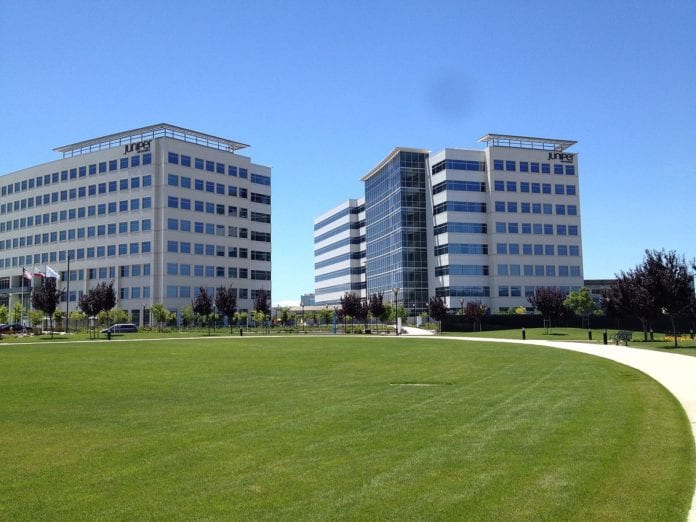The new converged services platform promises better metro area network efficiency, and an end to “rip and replace”
Juniper Networks has announced Cloud Metro, a new Metro Area Network platform aimed at service providers looking to upgrade 5G services while lowering total cost of ownership (TCO) by up to 77% and reducing device onboarding time from hours to minutes, by shifting to an on-demand service model. The platform combines “future-proofed” hardware and software optimized to deliver 5G and edge services.
Juniper calls metro area networks “the ‘new edge’ where connectivity, distributed cloud, and customer experiences converge.” Challenges to metro area networks include expanded security threats, a shortage of experienced talent to manage them, and new International Telecommunication Union (ITU) carbon emission reduction standards.
“Amid these conditions, operators can’t sustain the current cost per bit of service delivery for long. Juniper Cloud Metro applies cloud principles to metro networks, enabling sustainable business growth with future-proof systems, architecture, and AI-enabled automation as a service,” said Juniper.
Metro Cloud makes it easier for service providers to deploy with better efficiency, agility, and scale than current metro network infrastructure, Juniper claims. The company’s new platform lets service providers “future-proof” scale, performance and efficiency by eschewing their traditional three to five year “rip and replace” network, it said.
Cloud Metro is launching with a collection of existing Juniper services and solutions, with more to come later this year and in the first half of 2023. For now, Juniper has aligned its Paragon “automation as a service” under the Cloud Metro umbrella. Paragon provides AI-enabled, cloud-delivered network automation. Also included is device onboarding as a service, paired with Juniper Networks’ ACX7000 multi-service routers, equipped with 400 Gigabit Ethernet (GbE) and ready for 800G. Juniper Networks 400G ZR/ZR+ optics are coming later this year, with Juniper’s Connected Security portfolio expected to come online in the first half of next year. Connected Security adopts Zero Trust Network Access principles and employs advanced threat detection, analysis and prevention, said Juniper.
Juniper Network made a ZTNA-related move earlier this year when it announced the acquisition of WiteSand, a cloud-based security software startup with a speciality in zero trust. Juniper said at the time of the acquisition that it planned to integrate WiteSand’s technology into Mist, Juniper’s AI-driven network management platform. WiteSand’s cloud-based Network Access Control (NAC) is an alternative to systems like Cisco’s Identity Services Engine and Aruba’s Clearpass.
Juniper said Cloud Metro uses energy-efficient and adaptive power designs, which include Packet Forwarding Engines which can be switched off when idle.
“The removable modular power shelf design reduces e-waste and extends system lifetimes by accommodating up to 48 times bandwidth growth within the same chassis,” said Juniper.
Juniper strengthened its Secure Access Service Edge (SASE) portfolio earlier this year with another pay-as-you-go cloud-based service called Secure Edge. The “Firewall-as-a-Service” sports application control, intrusion prevention system (IPS), anti-malware, web proxy and filtering and advanced threat protection. Juniper Secure Edge employs the same policy framework as Juniper’s SRX hardware. It also provides a single-stack architecture for SASE, a more secure methodology, according to Juniper Networks VP of Product Management, Security Business & Strategy Samantha Madrid.
“When we say single stack, we mean that customers now have one solution to manage both user access and network access, and ensure that traffic is legitimate and protected from threats,” said Madrid.
In May, Juniper Networks announced CN2, a rebooted and rebranded version of it Contrail Networking platform. Contrail Networking enables the automation of Network Functions Virtualization (NFV) with service chaining. Juniper has positioned CN2 as a software-defined networking (SDN) platform, which automates the creation and management of virtual networks.

